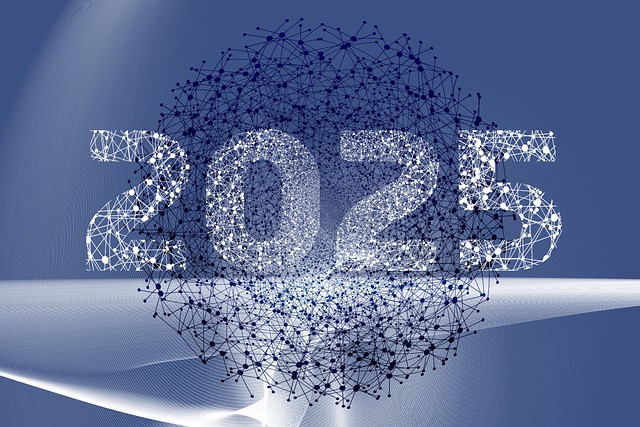By 2025, artificial intelligence (AI) will revolutionize healthcare through personalized medicine, leveraging genetic data and real-time health info to create tailored treatment plans. AI will automate administrative tasks, enhance medical education with adaptive learning platforms, and transform diagnostics by interpreting complex data like genetic information and imaging scans for early disease detection. Remote learning practices will enable global access to specialized medical knowledge, preparing future-ready skill sets through blended learning environments.
By 2025, Artificial Intelligence (AI) is poised to revolutionize healthcare. This transformative technology will not only enhance patient care through personalized medicine but also streamline administrative tasks, boosting efficiency across the board. AI’s advanced diagnostic capabilities promise early disease detection and prevention, potentially saving countless lives. With its ability to analyze vast datasets and provide insights beyond human capability, AI is set to reshape the healthcare landscape, improving outcomes and experiences for patients globally.
- Transforming Patient Care: Personalized Medicine
- Streamlining Administrative Tasks: Efficiency Boost
- Advanced Diagnostics: Early Disease Detection & Prevention
Transforming Patient Care: Personalized Medicine

By 2025, artificial intelligence (AI) is poised to revolutionize patient care through personalized medicine. This transformative technology enables healthcare providers to offer tailored treatments based on individual genetic profiles, lifestyle factors, and real-time health data. AI algorithms can analyze vast amounts of medical information, including electronic health records and genomic sequencing results, to identify patterns and make accurate predictions about disease progression and treatment outcomes.
This personalized approach enhances the effectiveness of therapies and improves patient outcomes. For instance, AI tutoring systems, similar to those found in interactive math software reviews, can provide adaptive learning experiences tailored to each patient’s unique needs. Similarly, online safety and security for students becomes more robust with AI-driven tools that monitor and mitigate potential threats. Even the e-learning platform comparison landscape is being transformed as AI incorporates elements of artificial intelligence tutoring systems into educational resources, fostering a more engaging and effective learning environment. Find us at our e-learning platform to explore these innovations firsthand.
Streamlining Administrative Tasks: Efficiency Boost

By 2025, Artificial Intelligence (AI) is poised to revolutionize healthcare operations through its ability to streamline administrative tasks, significantly boosting efficiency in hospitals and clinics worldwide. AI-driven systems can automate data entry, billing processes, and scheduling, reducing manual workload on staff while minimizing errors. This shift will not only save time but also allow medical professionals to focus more on patient care, enhancing overall service delivery.
Adaptive learning platforms, leveraging AI technologies, can play a pivotal role in this transformation. These platforms, designed with benefits like personalized learning experiences and intelligent content adaptation, have the potential to complement medical education, including critical thinking exercises online. Moreover, augmented reality (AR) applications in science classrooms could also see increased adoption, offering immersive learning opportunities that align with the future of education trends 2025.
Advanced Diagnostics: Early Disease Detection & Prevention

By 2025, Artificial Intelligence (AI) is poised to revolutionize healthcare diagnostics, marking a significant shift in early disease detection and prevention strategies. Advanced AI algorithms will play a pivotal role in interpreting complex medical data, including genetic information and imaging scans, with unprecedented accuracy. This capability can lead to the identification of subtle anomalies indicative of potential health issues at their earliest stages, even before symptoms manifest.
Leveraging AI within healthcare systems will enable personalized medicine approaches, where treatments are tailored to individual patients’ unique profiles. Adaptive learning platforms, benefiting from AI, can analyze patient data and provide real-time feedback, enhancing the effectiveness of preventive measures. The integration of such technologies into blended learning environments, as explored in recent research, aligns with digital citizenship curriculum guidelines, fostering a future-ready skill set. Remote learning best practices will further enable healthcare professionals to access and share this specialized knowledge globally, ensuring everyone has access to top-tier medical expertise.
By 2025, artificial intelligence (AI) will play a pivotal role in revolutionizing healthcare. Through personalized medicine, AI will enable more precise patient care tailored to individual needs. Streamlining administrative tasks will boost efficiency and reduce costs, allowing healthcare professionals to focus on patient treatment. Advanced diagnostics powered by AI will facilitate early disease detection and prevention, significantly improving patient outcomes. As these developments unfold, the healthcare landscape will undergo a profound transformation, marking a new era of intelligent, effective, and accessible care.
